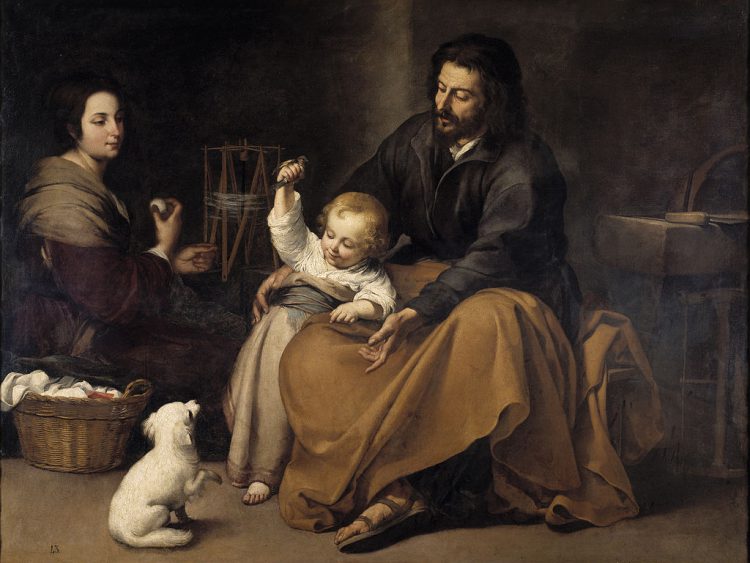A little tide me over for post-Christmas blues:
Would our knowledge of our Saviour be essentially complete if the New Testament did not contain the passages which narrate the virgin birth?
That question, we think, should be answered with an emphatic negative; without the story of the virgin birth our knowledge of our Saviour would be impoverished in a very serious way. Exaggerations, indeed, should be avoided at this point. Even without the infancy narratives we should have much upon which to rest our faith. Christ would still be presented in the New Testament as both God and man in two distinct natures and one person forever; the significance of His Cross would still stand out in all its glorious clearness; He would still be offered to us in the gospel as our Saviour.
Yet there would be a serious gap in our knowledge of Him, and questions would arise which would be full of menace for the souls of men. How did this eternal Son of God enter into the world? Did the Son of God unite with the man Jesus at the baptism as the Gnostics supposed; was the man Jesus received up gradually into union with the eternal Son? Erroneous answers to such questions would, without the story of the virgin birth, be all too ready to hand. No doubt those erroneous answers would still be capable of refutation to a mind ideally logical and really filled with the convictions which all the Gospels and Epistles would provide. Yet they would be only too natural to the minds of men as they actually are. Without the story of the virgin birth we should be living constantly in a region of surmises like the errors of the heresiarchs in the ancient Church.
Such surmises would deprive us of the full doctrine of the incarnation upon which our souls can rest. To that doctrine it is essential that the Son of God should live a complete human life upon this earth. But the human life would not be complete unless it began in the mother’s womb. At no later time, therefore, should the incarnation be put, but at that moment when the babe was conceived. There, then, should be found the stupendous event when the eternal Son of God assumed our nature, so that from then on He was both God and man. Our knowledge of the virgin birth, therefore, is important because it fixes for us the time of the incarnation. And what comfort that gives to our souls! Marcion, the second-century dualist, was very severe upon those who thought that the Son of God was born as a man; he poured out the vials of his scorn upon those who brought Christ into connection with the birth-pangs and the nine months’ time. But we, unlike Marcion and his modern disciples, glory just in the story of those things. The eternal Son of God, He through whom the universe was made, did not despise the virgin’s womb! What a wonder is there! It is not strange that it has always given offence to the natural man. But in that wonder we find God’s redeeming love, and in that babe who lay in Mary’s womb we find our Saviour who thus became man to die for our sins and bring us into peace with God.
Moreover, the knowledge of the virgin birth is important because of its bearing upon our view of the solidarity of the race in the guilt and power of sin. If we hold a Pelagian view of sin, we shall be little interested in the virgin birth of our Lord; we shall have little difficulty in understanding how a sinless One could be born as other men are horn. But if we believe, as the Bible teaches, that all mankind are under an awful curse, then we shall rejoice in knowing that there entered into the sinful race from the outside One upon whom the curse did not rest save as He bore it for those whom He redeemed by His blood.
How, except by the virgin birth, could our Saviour have lived a complete human life from the mother’s womb, and yet have been from the very beginning no product of what had gone before, but a supernatural Person come into the world from the outside to redeem the sinful race? We may not, indeed, set limits to the power of God; we cannot say what God might or might not have done. Yet we can say at least that no other way can be conceived by us. Deny or give up the story of the virgin birth, and inevitably you are led to evade either the high Biblical doctrine of sin or else the full Biblical presentation of the supernatural Person of our Lord. A noble man in whom the divine life merely pulsated in greater power than in other men would have been born by ordinary generation from a human pair; the eternal Son of God, come by a voluntary act to redeem us from the guilt and power of sin, was conceived in the virgin’s womb by the Holy Ghost. (The Virgin Birth of Christ [1930], 394-395)



